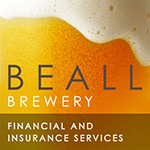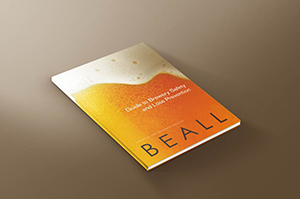The clinking of glasses in a bustling taproom, the aroma of hops and malt – these are the sensory hallmarks of the craft beer experience. But today, another, quieter element is brewing, one that resonates deeply with a growing number of consumers and can significantly impact a brewery’s success: sustainability. In 2025, environmental consciousness isn’t just a buzzword; it’s a major purchasing driver. Craft beer enthusiasts are increasingly thirsty for brews that not only taste good but also do good. This means breweries that embrace responsible practices from grain to drain are not just protecting the planet, they’re also cultivating brand loyalty and potentially improving their bottom line.
The shift is palpable. Across the industry, breweries are increasingly adopting a greener approach. Water, a lifeblood of brewing, is a prime focus. Innovative water conservation techniques, such as water reclamation systems for cleaning and cooling, are becoming more commonplace, drastically reducing a brewery’s water footprint. Imagine the impact when an average of seven barrels of water is typically used to produce just one barrel of beer!
Energy consumption is another critical area. Breweries are turning to renewable energy sources like solar panels to power their operations, significantly cutting down on greenhouse gas emissions and often long-term energy costs. Beyond the big installations, even simple measures like switching to LED lighting and investing in energy-efficient brewing equipment can make a substantial difference.
Waste reduction, particularly dealing with spent grains – the largest byproduct of the brewing process – has seen a surge in creative solutions. Instead of heading to landfill, these nutrient-rich grains are finding new life as animal feed for local farms, ingredients in baked goods (spent grain bread, anyone?), or even as a component in creating compostable packaging. Speaking of packaging, the move towards eco-friendly options is accelerating. We’re seeing more beers in recyclable aluminum cans (which are lighter to transport), biodegradable six-pack rings that don’t endanger wildlife, and a push for recycled content in bottles and labels.
One brewery that has masterfully woven sustainability into its very fabric is Sierra Nevada Brewing Co. Long before it was a widespread trend, Sierra Nevada was pioneering green initiatives. They boast one of the largest privately-owned solar installations in the craft beer industry, utilize microturbine technology to generate their own electricity and steam, and have extensive water recovery programs. Their commitment extends to composting food waste from their taprooms and diverting an astounding 99.8% of their solid waste from landfills. This dedication isn’t just an operational footnote; it’s a core part of their brand identity, attracting environmentally-minded consumers and setting a high bar for the industry.
But does “going green” affect the less glamorous side of the business, like insurance? The answer is nuanced. While simply adopting sustainable practices might not directly lead to an immediate discount on your general liability or property insurance premiums, it can have indirect positive impacts.
For instance, investing in new, energy-efficient brewing equipment or state-of-the-art water management systems can reduce the risk of equipment breakdown or water damage claims, potentially leading to a better claims history over time – a key factor insurers consider. Well-maintained, modern equipment is generally viewed more favorably. Furthermore, some insurers are beginning to offer specialized “green building” endorsements or recognize certifications that could offer modest benefits or at least position your brewery as a lower risk in certain aspects.
However, it’s also crucial to discuss any significant changes with your insurance provider. Installing a large solar array, for example, will need to be properly covered under your property insurance. Implementing novel waste-to-energy systems might introduce new risk exposures that need to be assessed. Open communication with your broker is key to ensuring your sustainability initiatives are adequately protected and don’t inadvertently create coverage gaps.
Ultimately, embracing sustainable brewing isn’t just about environmental stewardship; it’s a smart business strategy. It resonates with the values of modern consumers, can lead to operational efficiencies and cost savings, and helps future-proof your brewery against resource scarcity and evolving regulations. By thoughtfully implementing green practices, craft brewers can create a legacy that’s as enduring as their finest ales.
For more than 30 years, Beall Financial and Insurance Services, Inc., has been helping corporations and individuals protect their most important assets. The agency’s client base covers a spectrum of niche businesses, such as craft breweries, that require specialized insurance packages and knowledge. With offices in California and Indiana, Beall Financial and Insurance Services serves clients nationwide.


